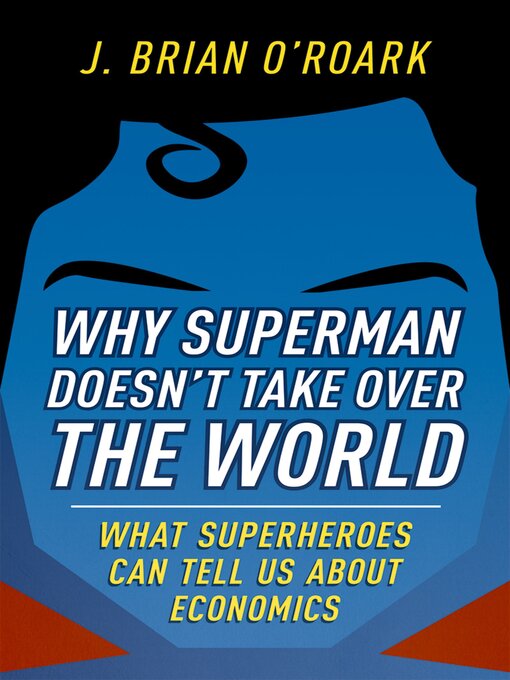Why Superman Doesn't Take Over the World
What Superheroes Can Tell Us About Economics
-
Creators
-
Publisher
-
Release date
January 17, 2019 -
Formats
-
Kindle Book
-
OverDrive Read
- ISBN: 9780192564900
-
EPUB ebook
- ISBN: 9780192564900
- File size: 829 KB
-
-
Languages
- English
-
Reviews
-
Booklist
May 1, 2019
O'Roark is a professor of economics at Robert Morris University in Pittsburgh, and he considers economics as a social science?a study of what makes people tick?and uses that approach to relate economic ideas to superhero tropes. The book begins with a brief overview of economics, then of comics, and then moves on to explore the parallels between the two, exploring both basic and more advanced economics concepts. O'Roark explores why Wonder Woman has a comparative advantage and therefore doesn't need a sidekick, and how Spider-Man relies on opportunity cost. He also examines questions like, Why do heroes fight each other? The book also includes figures and tables, such as The Avenger's Dilemma and Hero Utility Curves to help support concepts presented. For those who have difficulty grasping economic concepts, this is an eye-opening approach to the topic. This book is geared toward adults, but would also appeal to high school and college students.(Reprinted with permission of Booklist, copyright 2019, American Library Association.)
-
Loading
Why is availability limited?
×Availability can change throughout the month based on the library's budget. You can still place a hold on the title, and your hold will be automatically filled as soon as the title is available again.
The Kindle Book format for this title is not supported on:
×Read-along ebook
×The OverDrive Read format of this ebook has professional narration that plays while you read in your browser. Learn more here.

